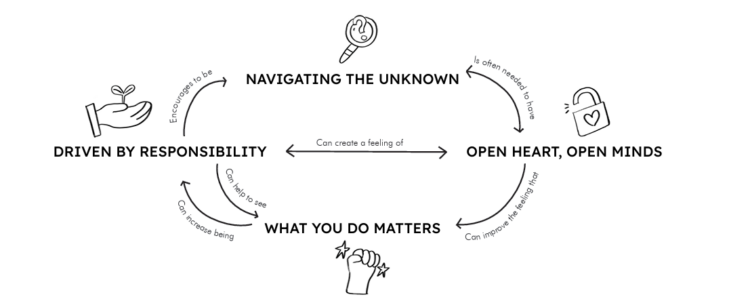Rethinking Youth Participation in Policymaking
Sep 2023 - ongoing
Rethinking Youth Participation in Policymaking: A Frame Innovation Approach
Youth participation is becoming increasingly important in municipal governance. However, despite the introduction of new tools, podcasts, and events designed to foster participation, engaging young voices in policy-making remains a challenge. This project explores whether a different perspective on this challenge can lead to more meaningful engagement.
This project is part of Healthy Start, a collaborative initiative between the Delft University of Technology, Erasmus Medisch Centrum and the Erasmus University Rotterdam, which seeks to enhance the well-being of young individuals. Among its ambitions is the enhancement of youth participation. The project will emphasize youth participation in municipal policy in Rotterdam.
Using the Frame Innovation method, a design approach focused on redefining problems to uncover innovative solutions, this study aims to discover unique insights by ‘reframing’ the issue of youth participation. Achieving an understanding of the stakeholders and their values was accomplished through a Research through Design approach. A variety of design activities were undertaken, including engaging policy advisors in creative sessions at Het Timmerhuis, and deploying cultural probes during dialogues with young individuals in a sounding board group and at the Rotterdam Blaak library.
The findings reveal that stakeholders have diverse needs. Not all officials view participation the same way, and differences among young people are significant. Four main themes emerged, reflecting the values of these diverse groups:
Open Hearts, Open Minds: This theme underscores the importance of genuine interactions and empathy, highlighting how prejudices can complicate matters. For example, officials may fear being perceived negatively by the public, while young people worry about being seen as inexperienced.
Navigating the Unknown: Participatory processes involve uncertainties, requiring both youths and officials to venture into unfamiliar territory. This theme explores how they can feel in control despite these uncertainties.
Driven by Responsibility: This focuses on the sense of duty and how it affects engagement. It questions when stakeholders consider something important enough to warrant their involvement.
What You Do Matters: This theme emphasizes the significance of feeling that one’s contributions are impactful and explores the dynamics of power within participation. Both youths and officials can feel powerless, doubting the impact of their efforts and not seeing the success of their actions.
Reframing the problem based on these themes offers new perspectives on addressing the challenges of youth participation. Navigating the Unknown might suggest a future with a municipal “travel agency” for participation, providing guidance, resources, and connections to make the participatory process less daunting and more accessible. Or adopting an “open hearts, open minds” approach one could imagine facilitating transparent discussions about roles and aspirations, enhancing engagement and ensuring participation leads to meaningful outcomes.
Check out more here!
